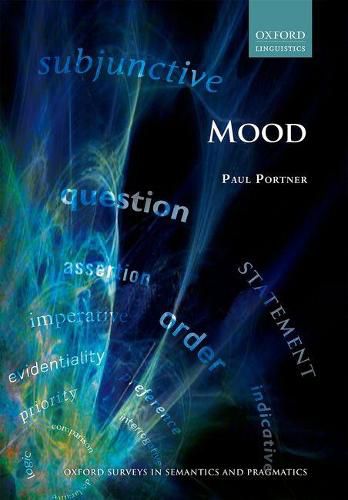Readings Newsletter
Become a Readings Member to make your shopping experience even easier.
Sign in or sign up for free!
You’re not far away from qualifying for FREE standard shipping within Australia
You’ve qualified for FREE standard shipping within Australia
The cart is loading…






This book presents the essential background for understanding semantic theories of mood. Mood as a category is widely used in the description of languages and the formal analysis of their grammatical properties. It typically refers to the features of a sentence-individual morphemes or grammatical patterns-that reflect how the sentence contributes to the modal meaning of a larger phrase, or that indicate the type of fundamental pragmatic function that it has in conversation. In this volume, Paul Portner discusses the most significant semantic theories relating to the two main subtypes of mood: verbal mood, including the categories of indicative and subjunctive subordinate clauses, and sentence mood, encompassing declaratives, interrogatives, and imperatives. He evaluates those theories, compares them, and draws connections between seemingly disparate approaches, and he formalizes some of the literature’s most important ideas in new ways in order to draw out their most significant insights. Ultimately, this work shows that there are crucial connections between verbal mood and sentence mood which point the way towards a more general understanding of how mood works and its relation to other topics in linguistics; it also outlines the type of semantic and pragmatic theory which will make it possible to explain these relations. The book will be a valuable resource for researchers and students from advanced undergraduate level upwards in the fields of semantics and pragmatics, philosophy, computer science, and psychology.
$9.00 standard shipping within Australia
FREE standard shipping within Australia for orders over $100.00
Express & International shipping calculated at checkout
This book presents the essential background for understanding semantic theories of mood. Mood as a category is widely used in the description of languages and the formal analysis of their grammatical properties. It typically refers to the features of a sentence-individual morphemes or grammatical patterns-that reflect how the sentence contributes to the modal meaning of a larger phrase, or that indicate the type of fundamental pragmatic function that it has in conversation. In this volume, Paul Portner discusses the most significant semantic theories relating to the two main subtypes of mood: verbal mood, including the categories of indicative and subjunctive subordinate clauses, and sentence mood, encompassing declaratives, interrogatives, and imperatives. He evaluates those theories, compares them, and draws connections between seemingly disparate approaches, and he formalizes some of the literature’s most important ideas in new ways in order to draw out their most significant insights. Ultimately, this work shows that there are crucial connections between verbal mood and sentence mood which point the way towards a more general understanding of how mood works and its relation to other topics in linguistics; it also outlines the type of semantic and pragmatic theory which will make it possible to explain these relations. The book will be a valuable resource for researchers and students from advanced undergraduate level upwards in the fields of semantics and pragmatics, philosophy, computer science, and psychology.